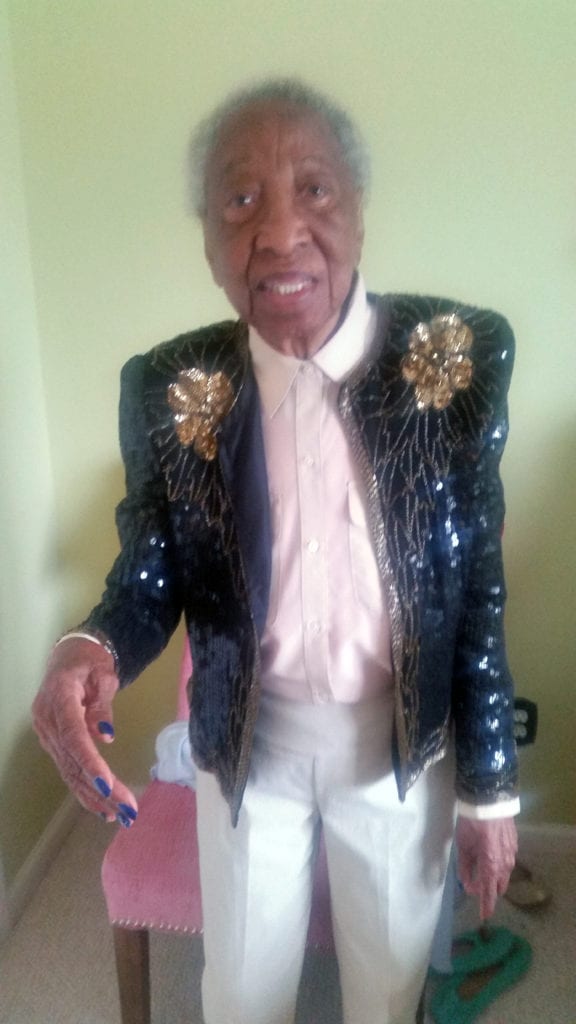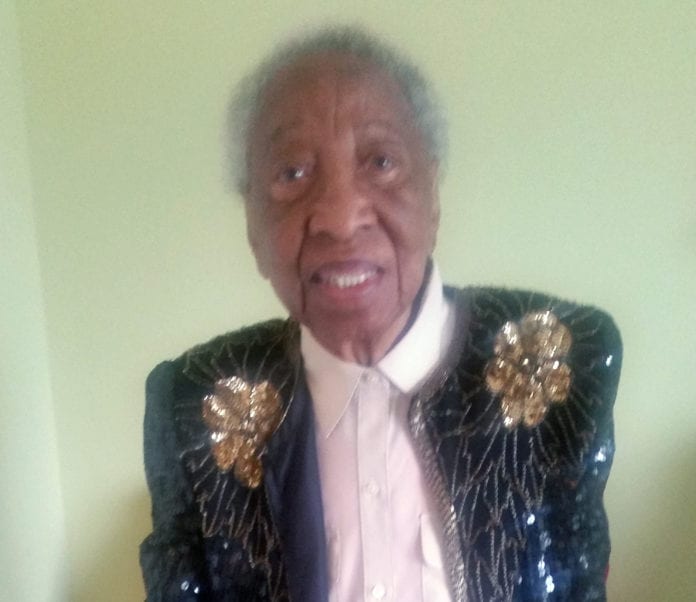When it comes to celebrating phenomenal mothers this Mothers Day, Mrs. Ruthie Mae Worthy should go right at the top of the list.
To her children, she is the Proverbs 31 woman: “…Who can find a virtuous woman? For her price is far above rubies…she looketh well to the ways of her household…her children arise up, and call her blessed…”
Mrs. Worthy was born July 27, 1921. Her children are planning a small, intimate party for their mother this summer — a celebration of life, if you will.
For those who have known Mrs. Worthy, her story is an extraordinary saga of a woman who gave to others out of her own need.
“I can remember in our little, two-bedroom house, Mother would take other children in, whole families in when we barely had enough room for us,” said Worthy’s daughter Mae Coleman of Atlanta.

Mrs. Worthy grew up in Capleville, an unincorporated community in southeast Shelby County near Lamar and Shelby Drive.
As far as Mrs. Worthy can recall, according to her son, Donnie Couch, there were no stories passed down to her or her sister from their grandparents.
“We never heard any talk of Mother’s grandparents being slaves,” said Couch, executive director of Donnie Couch Counseling and Consulting in Memphis. “The only thing our mother ever talked about was that she remembered her family always working in cotton fields.”
In Mrs. Worthy’s time, it was a rural stretch of cotton fields own by the Caple family.
Mrs. Worthy, as a young lady, moved from “the country” into Memphis. Like many young women coming to Memphis from rural parts of Tennessee, Arkansas and Mississippi, Mrs. Worthy cleaned the private homes of white families.
She married and had three children. Her husband died in an automobile accident. Mrs. Worthy married a second time and had three more children.
Both marriages were short-lived. For most of her young life, Mrs. Worthy was a single mother with six children to raise.
“Mother would never accept any help from the government,” said Coleman. “We wished she would take the cheese. We said, ‘Madea, why can’t we just get the government cheese and peanut butter?’ We would be so hungry. And Mother would say, ‘Won’t no government cheese or peanut butter ever come in this house. I’m working to take care of my children.’”
The family grew up in the Castalia area of South Memphis, near Magnolia Elementary School.
When Mrs. Worthy was hired at the old John Gaston Hospital as a housekeeper, she still didn’t make enough money to sustain her household, but they were never “turned outdoors.”
“Sometimes we didn’t have lights, and sometimes we were hungry and didn’t have food, but Madea would say, ‘You’ll always have a roof over your head. We’ll never be turned outdoors.’”
All those years working at the hospital, Mrs. Worthy would ride two buses to get to work. She was never late and she never called in — except this one day when she wasn’t at the bus stop and she missed her bus.
“All those years, Madea would wear her dress and heels to ride the bus,” said Coleman. “When she got to work, she would change into her clean and starched uniform. Then, when she got off from work, she would change back into her dress and heels.”
People would line up to look out the window to see Mrs. Worthy leave the hospital. She was what people called “a real lady.”

According to Coleman, Mrs. Worthy took such pride in her dress and carriage because growing up, she hated how hard her grandmother had to work in the fields and how whites treated African Americans in Capleville.
“Madea would always say she hated how hard her grandmother had to work,” said Coleman. “And she hated how the young, white children would address black elders by their first name. Mother promised herself that no one would ever treat her like that. She would tell anyone, ‘My name is Mrs. Worthy.’”
“My mother took pride in her work,” said Coleman. “You don’t see that kind of dedication any more. Oh, about that time she missed the bus? After that day, the head man at Memphis Transit Authority told those drivers not to ever leave without picking up Mrs. Worthy. He told those bus drivers, ‘If she is not at the bus stop, go and knock on the door. Something must be wrong.’”
John Gaston was demolished to make way for The MED, Regional One Medical Center. Mrs. Worthy retired from the hospital after 35 years. She suffered her first stroke, so there would be no retirement celebration for her then.
But The Med administration made sure Mrs. Worthy was celebrated a few years back in a banquet event. She had suffered a second stroke and could not attend, but her children and some other relatives were there.
The past ten years have been a wonderful time of reacquaintance and reconciliation for Mrs. Worthy and her son, Couch. It has been a heart-warming love affair between the two.
“I left home when I was 14,” Couch said. “I used to tell my mother not to worry about me. I’ll take care of myself.”
Today, Couch, a successful psychotherapist, bathes and dresses his mother every morning and brings her into the office with him.
“My mother has never cared about anything more in this world than her children,” said Couch. “So, after my mother suffered a second stroke, she came to live with me. I couldn’t do anything less, all those sacrifices Mother made for us. It’s been 10 years now, and we are closer than we have ever been, even with the dementia.”
Mrs. Worthy is just one of so many mothers worth lauding on Mother’s Day.



